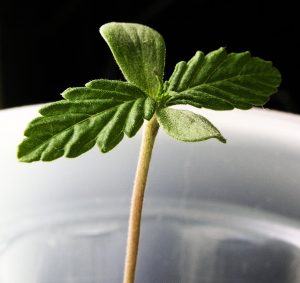California Cannabis Asset Protection When Commerce is All Cash
In the more than two decades since California voters approved legal marijuana as medicine, we’ve seen a dramatically-altered legal and political landscape in the California cannabis industry – and yet cash is still king
When medical marijuana dispensaries and collectives first started cropping up around California in 1997, they had to heavily guard their assets – both product and cash. Banks, cowed by federal law that might ensnare them on criminal money-laundering charges, denied accounts to almost everyone who profited from cannabis, a Schedule I narcotic. Being state-legal didn’t matter.
More than 20 years later, although California was late to join the recreational sales party, our Los Angles cannabis lawyers have seen so much of the legal landscape change. Profits are not only allowed, but encouraged. Collectives and co-ops were outlawed as of last month. Businesses are licensed and heavily regulated and taxed. Everything from seed-to-sale is tracked and tested by outside labs.
And yet: Most Southern California marijuana businesses still can’t convince banks to do business. That means in a world where e-commerce is booming, retail stores are shuttering and most people pay with plastic, marijuana businesses can’t move money electronically. So every time cash must be moved – to pay a vendor or file taxes – it’s almost always coordinated with teams of gun-strapped security officers (many ex-military) and armored cars, equipped with bullet-proof glass and high-end GPS tracking. Continue reading
 Cannabis Law Group's Medical Marijuana Legal Blog
Cannabis Law Group's Medical Marijuana Legal Blog





 involving First Church of Cannabis. The church had put in a bid attempting to allow smoking of marijuana as a religious sacrament in Indiana. The group sued the state, attorney general, and then Gov. Mike Pence in 2015. But a judge out of Marion County Superior Court recently ruled against the church, according to
involving First Church of Cannabis. The church had put in a bid attempting to allow smoking of marijuana as a religious sacrament in Indiana. The group sued the state, attorney general, and then Gov. Mike Pence in 2015. But a judge out of Marion County Superior Court recently ruled against the church, according to  One of the reasons they argue it is dangerous is because it has been labeled a so-called gateway drug. The many times disproven theory is that if someone uses marijuana, even though many do not see it as harmful, that a person is far more likely to try “harder” drugs such as cocaine and heroin. In other words, marijuana is a gateway to the dangers of all sorts of illicit drug use. If we take this argument another step, some with claim these marijuana users are not only addicted to marijuana at this point, and have moved no to cocaine and heroin, but they are also engaging in all sorts of street crime to fund their pricey habit.
One of the reasons they argue it is dangerous is because it has been labeled a so-called gateway drug. The many times disproven theory is that if someone uses marijuana, even though many do not see it as harmful, that a person is far more likely to try “harder” drugs such as cocaine and heroin. In other words, marijuana is a gateway to the dangers of all sorts of illicit drug use. If we take this argument another step, some with claim these marijuana users are not only addicted to marijuana at this point, and have moved no to cocaine and heroin, but they are also engaging in all sorts of street crime to fund their pricey habit. 


 The legalization of recreational marijuana in California on November 9, 2016, brought a host of unexpected questions for the commercial cannabis industry. Municipal and county ordinances have created a confusing web of compliance requirements for marijuana cultivators, distributors, and dispensaries. And in some limited areas, marijuana is simply banned altogether.
The legalization of recreational marijuana in California on November 9, 2016, brought a host of unexpected questions for the commercial cannabis industry. Municipal and county ordinances have created a confusing web of compliance requirements for marijuana cultivators, distributors, and dispensaries. And in some limited areas, marijuana is simply banned altogether.